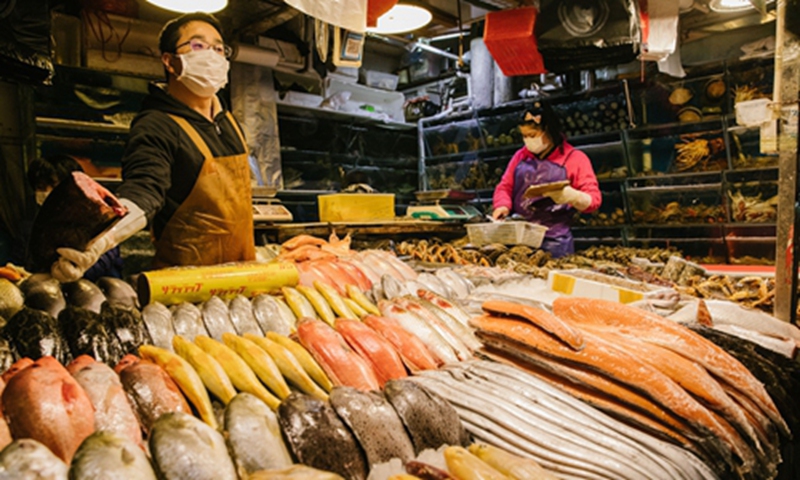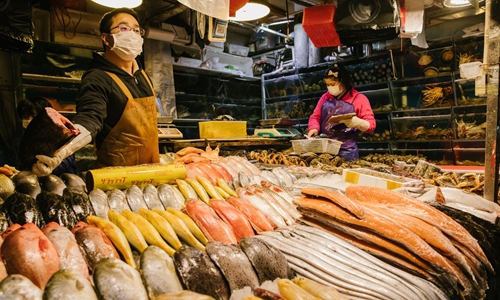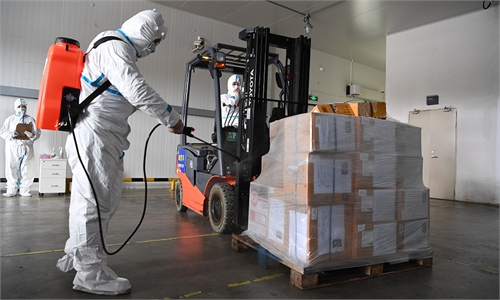
A seafood vendor solicits customers in Beijing's Sanyuanli Market in February, 2020. Photo: Li Hao/GT
As part of Beijing's efforts to strengthen supervision on imported cold-chain food that may carry COVID-19, the city has ordered all imported cold-chain foods stored at temperatures of 0 C and below to be included in imported food varieties that must make their sources and points of travel traceable from February 12, Chinese lunar New Year's Day.
These imported cold-chain foods include frozen grain products (such as quick-frozen rice and noodles), frozen dairy products (such as butter and cheese), frozen vegetables, fruits and drinks (including ice cream and frozen juice).
On November 11, 2020, the Beijing bureau of market supervision and administration together with the Beijing commerce bureau jointly launched the online platform "Beijing cold-chain" where the movements of all imported frozen meat and seafood can be traced.
Relevant companies and individuals working in imports, production and processing, circulation and sales, logistics and storage and catering services related to imported cold-chain foods are required to strictly implement the regulation.
No company or individual should purchase, operate, use, transport or store any cold-chain foods that do not have traceable data, including certificates and reports of inspection and quarantine, nucleic acid testing, disinfection or traceable information.
Local cold-chain food production and sales companies should ensure that comprehensive and accurate data is uploaded onto "Beijing cold-chain" for consumers to check.


